Flood Damage Prevention Measures
Flood Damage Prevention Measures Homeowners Can Implement:
The Maumee River Basin Commission encourages homeowners to take precautionary measures to protect their valuables in the event of a flood. Be prepared! Be Flood Smart!
Some examples of actions homeowners can take are:
- Scan family photos
- Scan important documents
- Digital Photographs / video of Household Contents to support Household Inventory
- Keep copies of important documents and digital files off premises or with trusted friend or relative.
- Elevate file cabinets
- Keep important papers in top drawer of cabinets
- Store valuables in water tight containers
- Elevate the furnace, water heater and electrical panel in your home;
- Install “Check valve” a/k/a Backflow Prevention Device in drainage tile or sanitary sewer between street and house to prevent floodwater and / or sewerage from backing up through floor drain, bath tub, stool or shower.
- Install sump pump(s) to adequately discharge water from basement area.
- Install “Engineered Flood Vents” in crawlspace foundation walls.
- Seal basement walls with water-resistant compounds / sealants.
- Purchase Flood Insurance
- Build an Emergency Kit; (see below)
- Develop a Family Communications Plan;
Safeguard your possessions.
Create a personal flood file containing information about all your possessions and keep it in a secure place, such as a safe deposit box or waterproof container. This file should have:
- A copy of your insurance policies and your agents contact information.
- A household inventory: For insurance purposes, be sure to keep a written and visual (i.e., videotaped or photographed) record of all major household items and valuables, even those stored in basements, attics or garages. Create files that include serial numbers and store receipts for major appliances and electronics. Have jewelry and artwork appraised. These documents are critically important when filing insurance claims.
- Copies of all other critical documents, including finance records or receipts of major purchases.
Prepare your house.
- Make sure sump pump is working
- For Short-term power outages—Install battery-operated backup to power sump pump(s).
- For Long-term power outages—Install an automatic emergency backup generator.
- Install a water alarm to alert you if water is accumulating in your basement.
- Clear debris from gutters and downspouts;
- Disconnect all downspouts from your perimeter tiled drain and discharge overland;
- Anchor all fuel tanks;
- Raise electrical components (switches, sockets, circuit breakers, and wiring) at least two feet above Base (1% Annual Chance; a/k/a 100-year) Flood Elevation when possible.
- Update electrical wiring circuits in basement by installing Ground Fault Interrupter (GFI) a/k/a/ Ground Fault Circuit Interrupter (GFCI) circuit breakers to prevent electrocution.
- Place furnace, water heater, washer, and dryer and other electrical appliances on cement blocks at least 12 inches above floor or two feet above Base (1% Annual Chance; a/k/a 100-year) Flood Elevation when possible; whichever is higher.
Develop a family emergency plan.
- Create a safety kit with drinking water, canned food, first aid, blankets, a radio, and a flashlight.
- Post emergency telephone numbers by the phone and teach your children how to dial 911.
- Plan and practice a flood evacuation route with your family. Know safe routes from home, work, and school that are on higher ground.
- Ask an out-of-state / out-of-town relative or friend to be your emergency family contact.
- Have a plan to protect your pets.
- Learn about your community's emergency plans, warning signals, evacuation routes, and locations of emergency shelters.
- Turn off natural / propane gas to all appliances EXCEPT for natural / propane gas-powered automatic backup generator.
- Turn off electrical power
- Secure structurally unstable building materials
- Identify potential home hazards and secure them
Flood Warnings
Know the Difference
Flood/Flash Flood Watch - Flooding or flash flooding is possible in your area.
Flood/Flash Flood Warning - Flooding or flash flooding is already occurring or will occur soon in your area.
For more information, please visit the following websites




